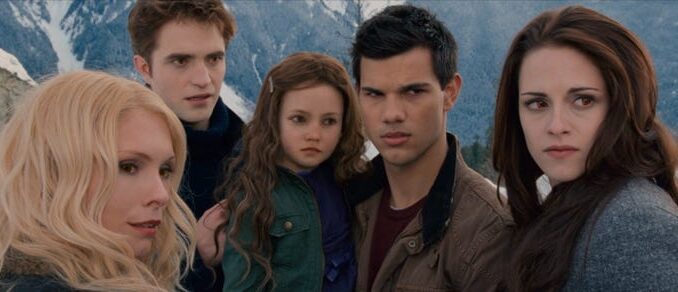
The whispers of a "Twilight" reboot drift like an ancient, familiar scent through the digital ether – a mix of pine needles, vampire skin, and undeniable nostalgia. For a generation, the original saga wasn't just a series of books or films; it was a cultural phenomenon, a fever dream of angsty romance, supernatural battles, and the peculiar allure of Forks, Washington. Now, the rumored return of Bella, Edward, and Jacob isn't just news; it's a fascinating case study in the relentless churn of intellectual property, the enduring power of fandom, and the delicate tightrope walk between honoring a legacy and forging a new path.
What do we know about this spectral new series? The knowns, for now, form a skeletal framework, more spectral presence than concrete edifice. Lionsgate Television is reportedly developing a new television series for Max (formerly HBO Max), not another cinematic venture. The most significant revelation, or perhaps reassurance for long-time fans, is the reported involvement of Stephenie Meyer herself as an executive producer. Beyond this, details remain shrouded in the misty forests of speculation: no cast, no director, no definitive timeline. The project is said to be in its very early stages, potentially a full reboot retelling the story from scratch, rather than a spin-off or continuation. This bare-bones information is enough to send ripples – of excitement, trepidation, and fervent debate – through the devoted fandom.
This leads us to the inevitable question: Why now? The answer is a potent cocktail of comfort and commerce. In an era dominated by the streaming wars, established intellectual property (IP) is the most coveted currency. Reboots, sequels, and spin-offs have become the lifeblood of platforms desperate to attract and retain subscribers. "Twilight" possesses an almost unique kind of evergreen appeal. Its books continue to sell, its films dominate streaming charts, and a new generation has discovered its charms (and meme-worthiness) through platforms like TikTok. The saga's inherent drama, sprawling lore, and passionate fanbase make it ripe for the episodic format, where narrative threads can unfurl at a more leisurely pace than the confines of a two-hour film. It’s a guaranteed audience, a warm blanket of familiarity in a constantly shifting media landscape.
And therein lies the promise. A television series, unlike the often rushed cinematic adaptations, could finally do justice to the sprawling, sometimes convoluted, but always compelling world Meyer created. Imagine the deeper dives into Volturi history, the nuanced exploration of the Quileute shapeshifter pack dynamics, or the individual backstories of the Cullen coven – Jasper's past as a Confederate soldier, Rosalie's tragic human life. The films, by necessity, streamlined much of this, often reducing complex characters to archetypes. A series could breathe new life into side characters, flesh out motivations, and explore themes of identity, choice, and destiny with greater depth. With modern visual effects, the ethereal beauty and raw power of the supernatural elements could be rendered with breathtaking fidelity, moving beyond the infamous "sparkling" that became the butt of many jokes. And with Meyer’s involvement, there’s the tantalizing possibility of a more faithful adaptation, perhaps even correcting perceived missteps from the original films.
Yet, for all its promise, the path ahead is not without its perilous cliffs. The most towering obstacle is, without a doubt, recasting. Robert Pattinson, Kristen Stewart, and Taylor Lautner are inextricably linked to Edward, Bella, and Jacob. Their performances, for better or worse, defined the characters for millions. Finding new actors who can embody those roles without simply imitating, and who can win over a fiercely loyal fanbase, is the Everest of this endeavor. The new series will also have to navigate the treacherous waters of fan expectation: how much should it adhere to the source material, and how much should it modernize? Does the angsty, often melodramatic tone of the original translate seamlessly to a contemporary audience, or does it need a subtle recalibration? There's a fine line between a respectful homage and a hollow imitation, between capturing the magic and simply chasing a trend. The challenge will be to evoke the feeling of Twilight while offering something fresh, something that doesn't just rehash but reinterprets.
The fandom, a vast and often vocal entity, watches with bated breath. Some clamor for the reboot, eager to revisit Forks with fresh eyes and a bigger budget. Others are wary, fearing that tampering with a beloved, if imperfect, classic might tarnish its memory. This rumored series is more than just another entry in the reboot craze; it's a test of whether a specific, almost cultish, brand of supernatural romance can transcend its original moment and capture the hearts of a new generation, while simultaneously satisfying the nostalgic pangs of the old.
As the fog of speculation slowly lifts from the potential "Twilight" reboot, we stand at a precipice. On one side lies the tantalizing promise of a richer, deeper, and perhaps even more definitive telling of a story that captivated millions. On the other, the very real peril of a misstep that could alienate the faithful and fail to ignite new passion. For now, all we know is that the saga is stirring, a slumbering giant preparing to wake. Whether it will glitter brilliantly under the sun or fade into the shadowed corners of forgotten reboots remains the ultimate mystery, a secret held close by the misty forests of Forks and the beating hearts of an eager, yet anxious, fandom.
